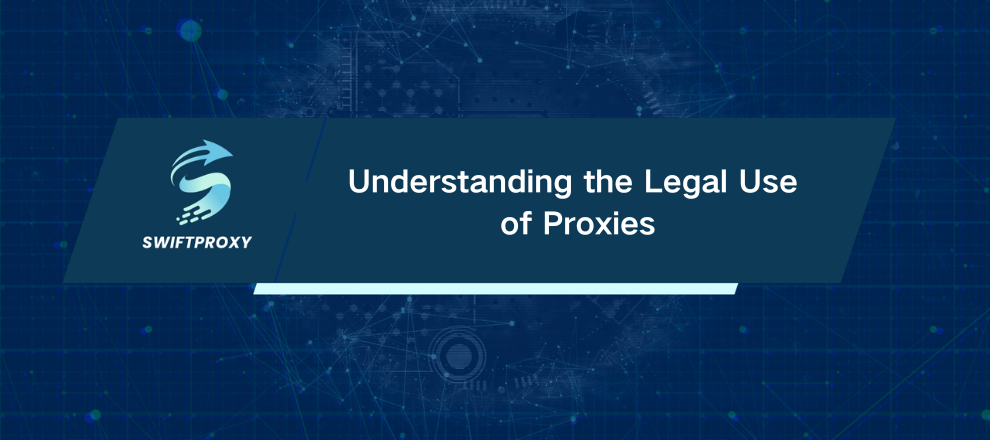Understanding the Legal Use of Proxies
Proxies are a common tool for anyone working online. They help hide your IP address, access content from other countries, and provide an extra layer of privacy. But are proxies legal? The answer depends entirely on how you use them. Understanding the boundaries between lawful and unlawful use is crucial to stay safe and avoid penalties.

When Proxy Use Is Legal
In most cases, using a proxy is completely legal. Common lawful applications include:
Accessing region-locked content: Proxies can help you open websites or services available only in specific regions.
Enhancing online privacy: They act as intermediaries to protect personal data and prevent tracking by third-party websites.
Marketing analysis: Businesses often use proxies to analyze markets or verify advertising campaigns.
Web scraping of public data: Collecting publicly accessible information without violating a website's terms of service is generally allowed.
In these contexts, proxies serve as a neutral tool for privacy, research, and convenience, without infringing on anyone's rights.
When Proxy Use Becomes Illegal
While proxies themselves are not illegal, certain uses can break the law:
Unauthorized data access: Attempting to bypass protections to access private accounts, services, or sensitive information without permission.
Pirated content: Using proxies to evade copyright protections when downloading films, music, or software.
Fraud and hacking: Activities like brute-force attacks, circumventing platform rules, or other malicious schemes.
Violating terms of service: Ignoring website or app rules can lead to account suspension or legal action.
The key takeaway is that legality depends entirely on purpose and method of use.
How Proxy Regulations Differ by Region
Proxy use is subject to different rules depending on your location:
United States: The Computer Fraud and Abuse Act (CFAA) targets unauthorized access to systems. Using proxies to bypass protections can be a violation.
Europe: GDPR and copyright laws impose strict rules on collecting personal data and limit proxy use for tracking or scraping.
Asia: Many countries regulate access to overseas resources, and in some cases, proxies are restricted or banned to enforce censorship policies.
Knowing local regulations is essential to avoid legal issues.
Guidelines for Ethical and Safe Proxy Use
To stay on the right side of the law, follow these best practices:
Use proxies only for lawful purposes.
Check the terms of service for every website or platform.
Avoid piracy and attempts to bypass technical protections.
Balance your privacy needs with compliance obligations.
For example, a proxy can help you access information necessary for work without violating any rules. Proper use ensures safety, legality, and efficiency.
Final Thoughts
Proxies are simply tools. Their legality is determined by user behavior, not the technology itself. Choosing a reputable provider also matters, as trustworthy providers offer ethically sourced solutions and clear cooperation terms.

















































